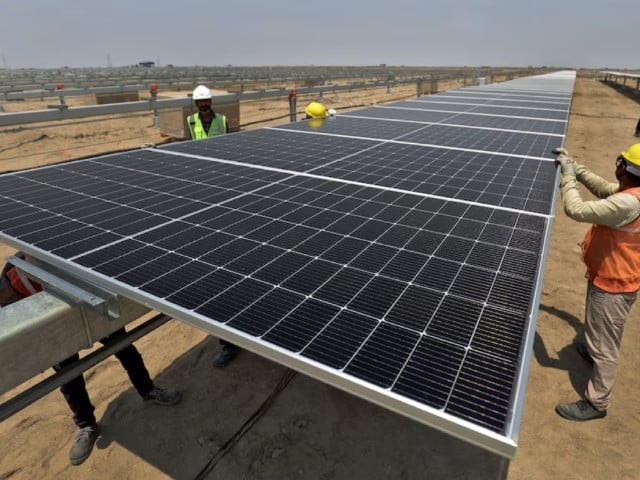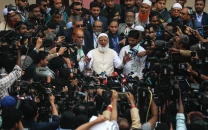Pakistan pushes for soft energy finance
.

Pakistan has underscored the importance of stepping up progress towards sustainable energy goals at an event arranged by China and partners that focused on hastening the adoption of clean energy.
In his remarks at the session on 'Global Energy Interconnectivity and Transition for SDGs (Sustainable Development Goals)', Ambassador Usman Jadoon, deputy permanent representative of Pakistan to the UN, pointed out that investments in sustainable infrastructure were not commensurate with the scale of the challenge the international community faces.
'The need for energy transition was also recognized in COP-28 (the UN climate conference in UAE) in which we agreed to pursue a 'Just Energy Transition,' he said.
Noting a $2.5 trillion annual funding gap in infrastructure, with two-thirds needed in developing countries, the Pakistani envoy said that clean energy financing needs were estimated at $4.3 trillion per year until 2030, increasing to $5 trillion per year until 2050.
Yet, he said, international public financial flows to developing countries in support of clean energy have been decreasing since 2020.
In 2022, Ambassador Jadoon said that investment in renewable energy reached only $ 0.5 trillion, mainly in developed countries or major emerging economies,
On their part, the Pakistani envoy said most developing countries have set ambitious energy transition targets in their nationally determined contributions (NDCs). In this regard, he said Pakistan aims to achieve 60% renewable energy by 2030, with the energy transition estimated to cost over $100 billion by 2030 and an additional $ 65 billion by 2040.
He said that developing countries struggle to mobilize sufficient investment for their NDC targets due to limited public resources and challenges in securing private investment.



















COMMENTS
Comments are moderated and generally will be posted if they are on-topic and not abusive.
For more information, please see our Comments FAQ